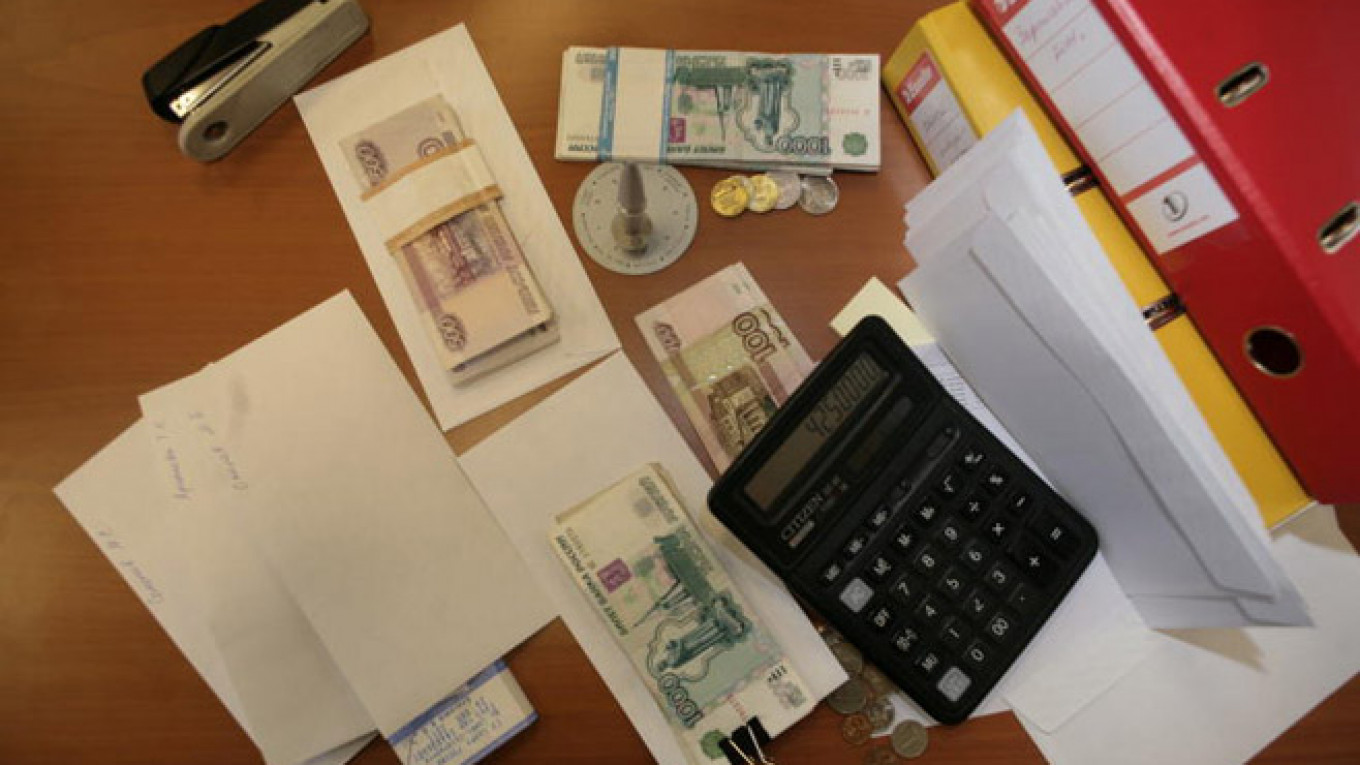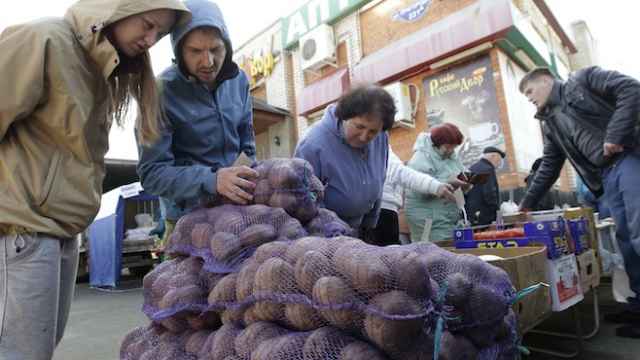A slump in Russian consumer spending deepened in April as real wages fell at their fastest pace in 16 years, data published Friday by state statistics service Rosstat showed.
With Russia's economy contracting and price inflation running at more than 16 percent, Rosstat said Russians' real wages fell by 13.2 percent in April compared to the same month in 2014 — far exceeding the 8.3 percent decline in the first quarter of this year. This was the biggest monthly drop since 1999, which was the year immediately following a full-blown and traumatic financial collapse.
Average real incomes, which measure not only wages but other private income and state payouts such as pensions, were 4 percent lower in April than a year earlier, according to Rosstat.
With earnings sliding, Russian retail sales — one of the key drivers of the economy — fell by 9.8 percent year-on-year in April after falling 6.7 percent in the first quarter.
Russia's economy contracted by 1.9 percent in the first quarter, according to official figures, as a plunge in oil prices and Western sanctions on Moscow over the Ukraine crisis drove down the value of the ruble and squeezed investment.
Recent surveys have found that more than half of Russians are reducing their spending on food and other basic consumer items, while almost 20 percent have no disposable income left after spending on necessities such as food and housing.
The World Bank in April warned that 5 million more Russians could fall below the poverty line this year.
The average Russian earned 32,805 rubles per month ($650) in April, according to Rosstat.
A Message from The Moscow Times:
Dear readers,
We are facing unprecedented challenges. Russia's Prosecutor General's Office has designated The Moscow Times as an "undesirable" organization, criminalizing our work and putting our staff at risk of prosecution. This follows our earlier unjust labeling as a "foreign agent."
These actions are direct attempts to silence independent journalism in Russia. The authorities claim our work "discredits the decisions of the Russian leadership." We see things differently: we strive to provide accurate, unbiased reporting on Russia.
We, the journalists of The Moscow Times, refuse to be silenced. But to continue our work, we need your help.
Your support, no matter how small, makes a world of difference. If you can, please support us monthly starting from just $2. It's quick to set up, and every contribution makes a significant impact.
By supporting The Moscow Times, you're defending open, independent journalism in the face of repression. Thank you for standing with us.
Remind me later.






